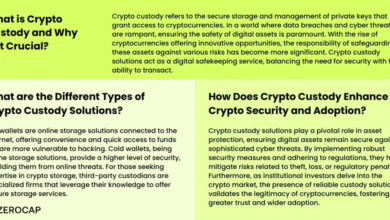Spanish Citizens Cash Withdrawal Reporting: The Truth Revealed

Spanish Citizens Cash Withdrawal Reporting has recently become a topic of confusion, particularly following the viral spread of inaccurate claims surrounding cash withdrawals over €3,000. Many were startled to learn about supposed regulations requiring these citizens to report such transactions in advance to the tax agency, accompanied by threats of hefty fines. However, Spanish crypto and tax experts quickly debunked these claims, clarifying that they stemmed from a misunderstanding of Spain’s anti-money laundering laws, which apply to banks—not individual citizens. It is important to distinguish between the obligations placed on financial institutions versus the general public when discussing cash withdrawal limits and reporting requirements. Therefore, it remains crucial for Spanish citizens to stay informed about Spain tax regulations to avoid confusion and misinformation.
In recent discussions regarding financial transactions, the concept of cash withdrawal declarations by residents of Spain has surfaced, raising alarm over supposed new regulations. This misguided notion suggested that individuals must notify the fiscal authorities of cash withdrawals exceeding €3,000, sparking debate within the community. While such reports may have startled many, it is essential to understand the distinction between national financial reporting obligations and specific anti-money laundering measures that target banks. Additionally, as the world navigates issues surrounding cryptocurrency and taxes in Spain, understanding these parameters only enhances clarity and compliance. Staying adept on the nuances of Spain’s financial framework will empower citizens to make informed decisions.
Understanding Cash Withdrawal Regulations in Spain
In Spain, there has been confusion surrounding the rules governing cash withdrawals, particularly the misconception that citizens must pre-report amounts exceeding €3,000 to the tax agency. This misinformation often spreads through social media, leading to unnecessary panic among citizens. The reality is that while cash withdrawal limits exist, these regulations primarily impact banks under anti-money laundering (AML) laws, not individuals. Therefore, Spanish citizens can withdraw this amount without facing any legal obligation to report these transactions to the tax authorities.
The core of this misunderstanding lies in the stringent AML regulations that financial institutions must adhere to, which require them to report large cash withdrawals to ensure that funds are not being funneled into illicit activities. These measures are designed to monitor and curb money laundering and criminal financial activities, but they do not extend the same requirement to individuals making personal cash withdrawals. As such, citizens engaging in typical financial transactions retain their privacy and do not need to navigate complex reporting requirements simply by withdrawing their own funds.
The Role of Anti-Money Laundering Regulations
Anti-money laundering (AML) regulations play a crucial role in maintaining the integrity of the financial system in Spain. Financial institutions are subjected to strict obligations, including reporting large cash withdrawals over €3,000. These regulations help authorities trace potentially illegal activities and ensure that financial transactions are transparent. It’s important to differentiate the obligations of banks, which must enforce these regulations, from those of individual citizens, who do not share the same reporting responsibilities.
While these AML rules are essential for safeguarding the financial structure, they do not impose undue burdens on everyday citizens. The misinformation circulating online tends to blur these lines, leading to the dangerous belief that individuals might face severe penalties for failing to report their cash withdrawals. However, experts in Spanish tax regulations clearly assert that only banks are liable for reporting, which means individuals can withdraw cash freely without the fear of incurring fines or penalties from the tax agency.
Cryptocurrency Regulations and Tax Reporting in Spain
As Spain continues to refine its approach to cryptocurrency and taxes, it is vital for citizens to understand their reporting responsibilities. The Spanish Tax Agency is increasingly focusing on digital assets, implementing regulations to ensure compliance with tax obligations. Cryptocurrency enthusiasts are encouraged to declare their holdings and transactions accurately to avoid potential issues, particularly as these assets can complicate tax reporting compared to traditional fiat currencies.
With the rise of digital currencies, the intersection of cryptocurrency and tax regulations has become a pressing topic for both regulators and investors. Spanish citizens engaging in cryptocurrency dealings must remain vigilant and informed about their legal obligations. This includes understanding how capital gains tax applies to cryptocurrency profits and ensuring that any gains or losses are reported accurately, thus avoiding pitfalls that could lead to scrutiny from tax authorities.
Debunking Misinformation in Financial Regulations
The recent uproar regarding cash withdrawal reporting highlights the dangers of misinformation spreading through social media. Individuals are often quick to share alarming claims without verifying their accuracy, leading to widespread misunderstandings about the actual regulations in place. Experts have emphasized the importance of seeking verified information and understanding the difference between banking regulations and personal finance management.
By debunking these myths, it is essential to foster a more informed public aware of their rights and responsibilities regarding cash withdrawals and tax obligations. Spanish citizens should rely on trusted sources for information about financial regulations and remain skeptical of sensational claims that lack factual basis. Building financial literacy will empower citizens to manage their finances responsibly without fear of unwarranted penalties.
Risks of Not Reporting Cryptocurrency Transactions in Spain
While there is no obligation to report cash withdrawals, the situation is different for cryptocurrency transactions in Spain. Failing to report gains from cryptocurrency investments can attract scrutiny from the Spanish Tax Agency, as the government intensifies efforts to regulate and tax digital assets. Investors need to be aware of their duty to accurately report earnings to prevent facing hefty fines or penalties.
Additionally, the complexity of cryptocurrency tax regulations can lead to unintentional non-compliance. With various factors ranging from capital gains to market fluctuations, it is essential for cryptocurrency enthusiasts to maintain detailed records of their transactions. Engaging a knowledgeable tax advisor who specializes in cryptocurrency can help navigate the nuances of tax reporting in Spain and ensure compliance with local regulations, thus avoiding potential pitfalls.
The Impact of Online Miscommunication on Public Perception
The alarming spread of misinformation regarding cash withdrawal regulations demonstrates how false narratives can shape public perception and lead to widespread panic. Miscommunication about financial regulations—including mandatory reporting and potential penalties—can result in citizens taking unnecessary precautions or altering their financial habits out of fear of repercussions that simply do not exist.
To counteract this trend, it is vital to promote credible sources of information and encourage individuals to engage with experts in finance and tax regulation. By prioritizing accurate communication, citizens can maintain confidence in their financial decisions, understanding clearly the boundaries set by Spain tax regulations without succumbing to fear resulting from baseless claims circulated online.
Understanding Withdrawal Limits and Compliance
In Spain, while cash withdrawal limits tend to attract attention, the actual obligations surrounding these limits are often misunderstood. Citizens may wonder if withdrawing large sums could trigger compliance issues, yet banks are the entities that must navigate these limits under AML rules. It is essential for individuals to know that they can withdraw cash freely, and banks will monitor these transactions without implicating the individual in reporting duties.
This understanding allows Spanish citizens to manage their finances without unnecessary stress regarding regulatory compliance for cash withdrawals. As long as individuals stay informed about the laws that govern financial institutions rather than those designed for personal finance, they can avoid the pitfalls of misunderstanding common regulations related to cash transactions.
Fines Associated with Financial Reporting in Spain
The rumors surrounding €150,000 penalties for failing to report cash withdrawals have caused significant fear among Spanish citizens. However, these penalties apply strictly to banks under AML regulations rather than individuals making personal transactions. This distinction is crucial for citizens to grasp, as it allows them to withdraw funds without the looming threat of massive fines simply because they opted to manage their finances in cash.
Financial compliance in Spain is largely an issue for financial institutions, while individuals hold a different set of responsibilities. This understanding can help cultivate a more informed public, reducing anxiety about financial activities that are completely legitimate and exempt from repulsive penalties. Know your rights and ensure you are in compliance without fear of exaggerated penalties that do not apply to personal transactions.
Importance of Accurate Information in Financial Decisions
As financial literacy becomes increasingly important, especially in the landscape of cryptocurrency taxation and cash withdrawal policies, access to accurate information is vital for Spanish citizens. Misinformation can lead to poor financial decisions that could result in fines or compliance issues. It is essential to emphasize the value of seeking knowledge from reliable sources, particularly regarding tax regulations and bank compliance.
Citizens must equip themselves with accurate information to navigate the financial landscape effectively. Awareness of the rules governing their financial dealings, especially concerning withdrawal limits and tax responsibilities for cryptocurrency, can foster responsible financial behavior and ultimately support a healthy economic environment. Engaging with professional advisors can enhance understanding and support compliance with relevant Spanish tax regulations.
Frequently Asked Questions
Do Spanish citizens have to report cash withdrawals over €3,000 to the tax agency?
No, Spanish citizens are not required to report cash withdrawals over €3,000 to the tax agency in advance. Recent misinformation circulating on social media has led to confusion regarding this, but tax experts confirm that cash withdrawal reporting pertains to banks under anti-money laundering Spain regulations, not individual citizens.
What are the cash withdrawal limits for Spanish citizens under current regulations?
Currently, there is no obligation for Spanish citizens to report cash withdrawals over €3,000. However, banks in Spain must comply with anti-money laundering regulations that may trigger reporting requirements for large withdrawals.
How do Spain tax regulations affect cryptocurrency transactions?
Spain tax regulations require citizens to declare their cryptocurrency holdings and earnings, but there are no specific rules mandating the reporting of cash withdrawals unless these fall under larger banking transactions monitored for anti-money laundering compliance.
What does anti-money laundering Spain imply for bank transactions?
Anti-money laundering regulations in Spain require banks to monitor and report significant cash withdrawals exceeding certain thresholds. However, these rules apply to financial institutions rather than individual citizens regarding cash withdrawal reporting.
Is there a risk of fines for Spanish citizens regarding cash withdrawals?
There is no risk of fines up to €150,000 for Spanish citizens failing to report cash withdrawals. These penalties are related to banks’ compliance with anti-money laundering laws, not individual cash transactions.
How might cryptocurrency use affect cash withdrawal reporting in Spain?
While cryptocurrency usage in Spain is subject to taxation, it does not change the regulations around cash withdrawal reporting. Spanish citizens are still not obligated to report cash withdrawals over €3,000 to the tax agency.
What should Spanish citizens know about reporting cash withdrawals?
Spanish citizens should understand that there is no requirement to report cash withdrawals over €3,000. The misinformation suggesting otherwise is linked to misunderstandings about anti-money laundering Spain regulations affecting banks, not individuals.
| Key Point | Details |
|---|---|
| False Regulation Claim | Spanish citizens do not have to report cash withdrawals over €3,000 to the tax agency. |
| Misunderstanding of AML Regulations | The claim originated from a mix-up of anti-money laundering regulations which apply to banks and not individuals. |
| Penalties for Wrong Reporting | There are penalties of up to €150,000, but these apply to banks for failing to report, not to individuals. |
| Expert Clarifications | Experts like Cris Carrascosa and Jose Antonio Bravo confirmed that the viral information was incorrect. |
| Social Media Misinformation | The misinformation reflects the need for careful verification before sharing financial news online. |
Summary
Spanish Citizens Cash Withdrawal Reporting created confusion about the requirement to report cash withdrawals over €3,000. However, it has been confirmed that there is no such obligation for ordinary citizens, as these regulations are specific to banks under anti-money laundering laws. Experts have strongly opposed the misinformation circulating on social media, emphasizing the importance of accurate information and the potential consequences of spreading false claims. It is essential to rely on accurate sources and expert opinions regarding financial regulations.




